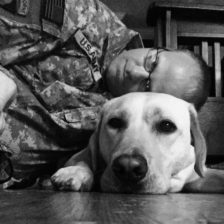Depression. Noun. 1. Feelings of severe despondency and and dejection.
2. A long and severe recession in an economy or market.
I’m not talking about our economy here, I’m talking about feelings, mood changes, symptoms.
Some refer to depression as a common but severe mood disorder that causes some severe symptoms—these affect how you feel, think, and handle daily activities. Those activities may include sleeping, eating, or working.
Some of these symptoms or signs may reveal themselves every day. What are they? How do you know?
According to the National Institute for Mental Health:
Feeling of being sad, anxious, empty, hopelessness, irritability, guilt, worthlessness, decreased energy, fatigue, moving or talking slowly, aches, pains, weight gain or loss, thoughts of death or suicide, difficulty concentrating or remembering, feeling restless or having trouble sitting still.
Now, if you’ve had these feelings at one time, are you depressed? No.
Not everyone who is depressed experiences these feelings or symptoms. Some folks may only experience a few, and some folks may experience all. Depression can happen at any age, but sometimes begins in adulthood.
So, can you imagine adding some of those symptoms to a Veteran who has gone through loss (like that of a member of a unit), changed jobs (left the military and returned to civilian life), endured a traumatic event like combat, injury, a natural disaster, or even sexual abuse? Imagine facing reintegration into a world that has changed, coming home to a strained or damaged relationship, financial problems, or even divorce.
I see it.
I know what depression can do.
I hate it.
I know there is help out there.
For some people, it is not easy to reach out. Emotions get bottled up, feeling sad and hopeless is part of every day routine. Losing interest in work, family, friends, it happens. It is a fight, a struggle.
When people ask “So, is Sam all better now?” The answer is no. No, he is not cured, he is not free from PTSD, he deals with some of the feelings and emotions listed above. He is tired. He dreads work. And there are some days he doesn’t want to even get out of bed.
But he does.
He fights down memories, nightmares, and even in his job, working with other Veterans, sometimes has to address those very demons. He has to battle those every.single.day. I can’t imagine how hard it is to help others while helping yourself with some of the same concerns.
Statistics from 2009 suggest that, “Depression is one of the most common and expensive mental disorders, costing the United States an estimated $66 billion per year. Veterans diagnosed with depression account for slightly more than 14 percent of the total.”
Of course, suicide is addressed in the statistics from NAMI, suggesting that younger Veterans at are risk more than others, however, that is not always the case.
Help is out there. We (society) need to do better at recognizing the warning signs of a crisis, or simply recognize we need to be there for people. Taking a ride to decompress, answering the phone at 2 am when someone calls because they need to talk, just simply providing support—we have to do better.
There is confidential help for Veterans and their families.
1-800-273-8255 (Press 1).

I love this photo of Sam and Memphis. This shows the bond they share. Sometimes no words are needed.
